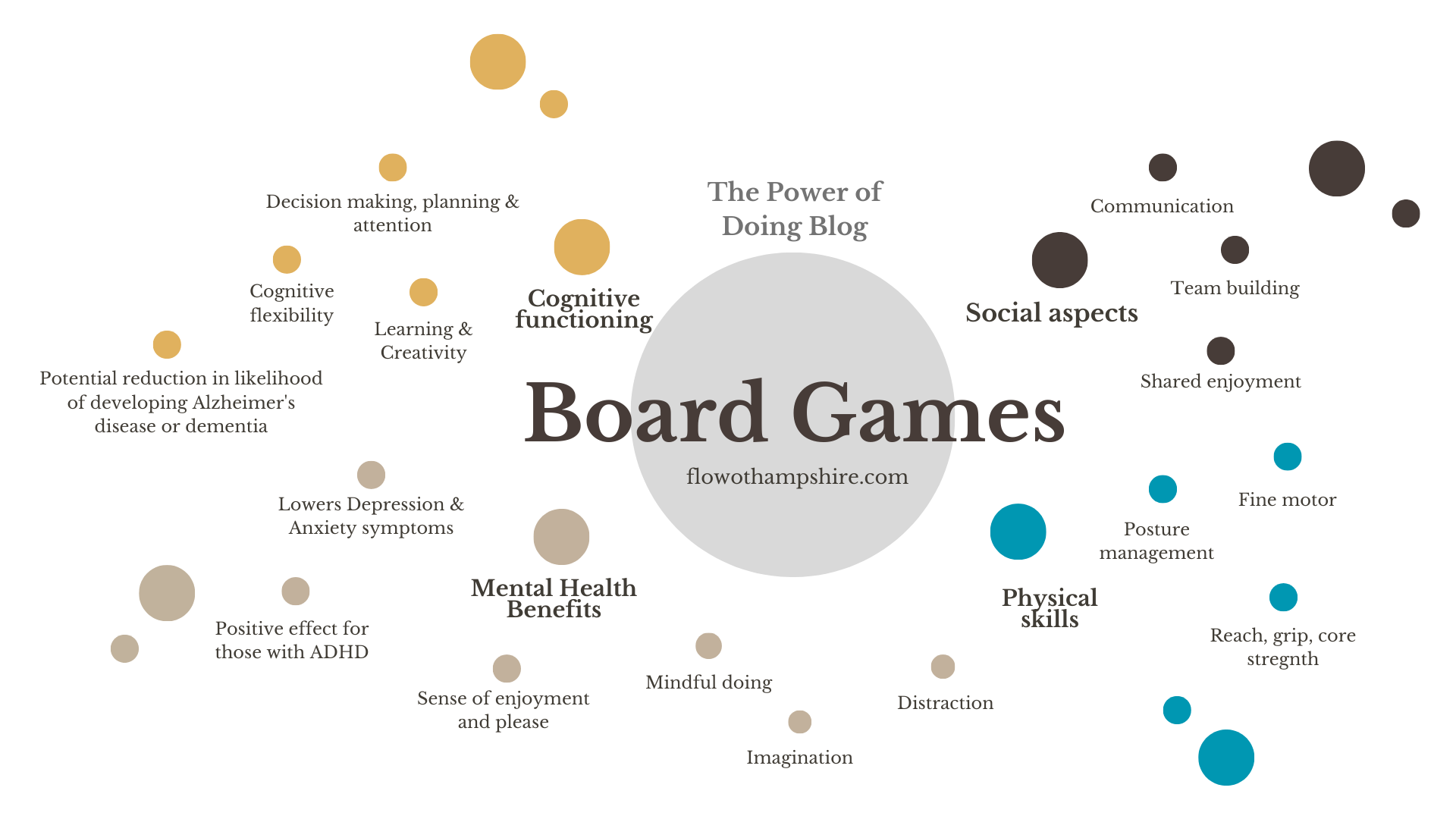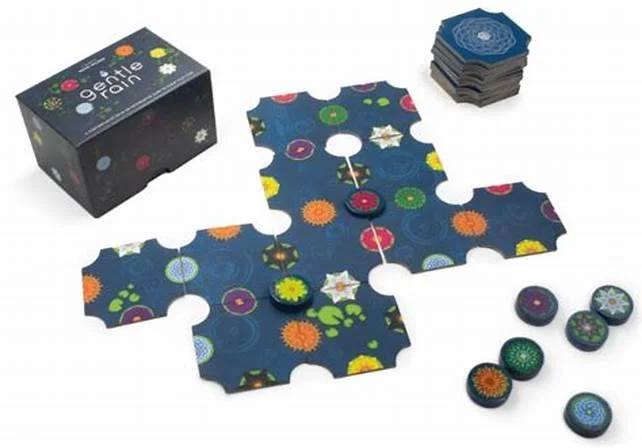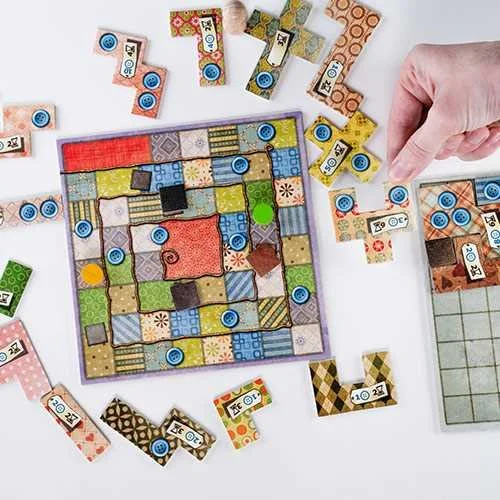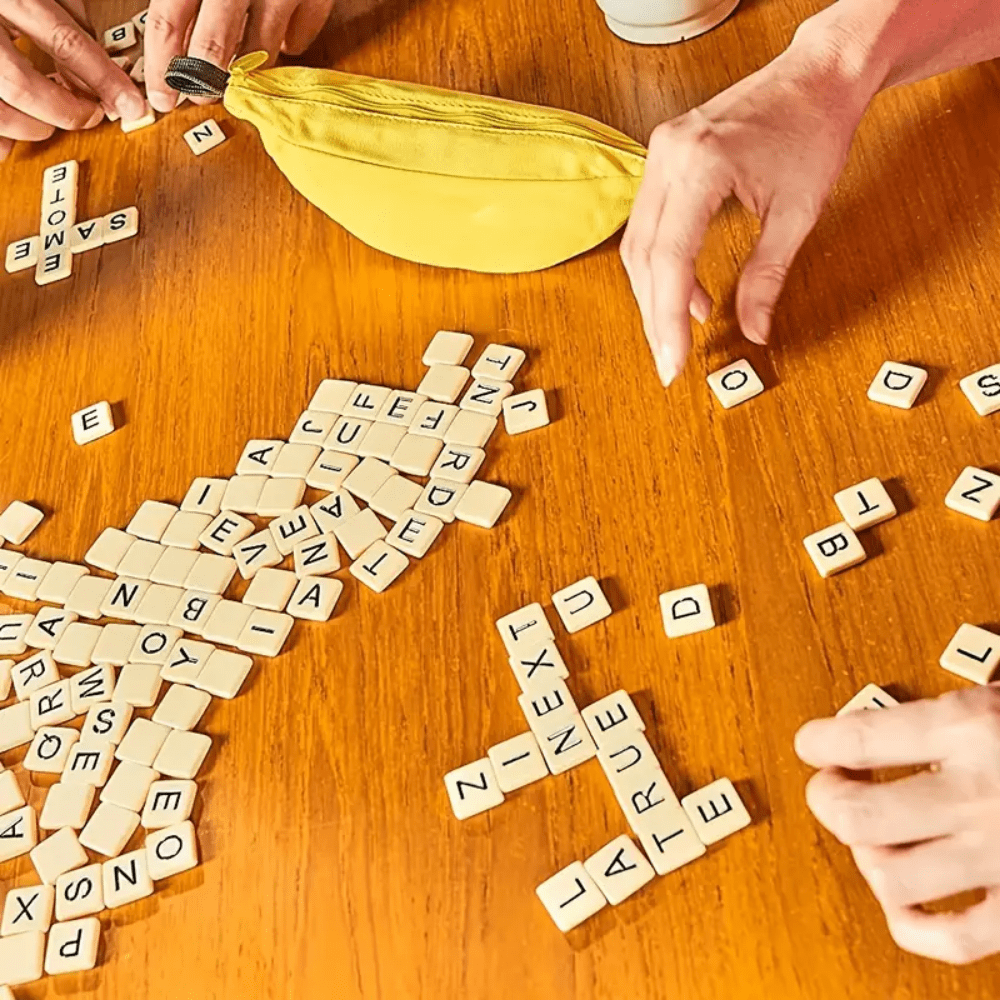A simple way to boost your mood
Hiding somewhere in the back of a cupboard or on a shelf could be one of the most effective tools to boost your mental health and wellbeing without you even realising it.
The humble board game...
Whether it’s card or token based, short or full day consuming, competitive or co-operative, the likelihood is that you’ll know at least one board game you love or loved as a younger person and if you can’t think of any, hopefully by the end of this blog you’ll be tempted to give some a try.
Picture this - It’s a weekday evening. Work’s been pretty stressful. If you have kids maybe you’ve just got them to bed. The last few hours of the day are yours! The sofa and another hour-long episode of ‘The Gentleman’ on Netflix is very very tempting (thoughts on the chicken scene please? Personally I’m still unsettled). However sometimes what our brains need is a little more stimulation.
Board and card games are the perfect quick win when it comes to switching up the twilight hours and gifting our minds with a distracting challenge.
Even short games can give us the chance to develop our concentration, problem solving and decision making skills. The attention and focus required can support with easing symptoms of anxiety (Noda et al. 2019) and if you’re lucky enough to become highly immersed in a game, you might even find that it lifts your mood on a low day. There is also evidence to suggest that regular use of board games can reduce the risk of developing Alzhiemer’s and Dementia in later life (Lin et al, 2015).
Along with the cognitive advantages board and card games bring, they also provide the perfect situation to engage with others in meaningful activity. Most of my friends and family know me as someone with a big collection of games and recently I’ve hosted a few game nights with friends. I find games can enhance time together as well as provide an opportunity to learn about each other’s personalities, skills and strengths. The extent of focus they often need means undivided attention, which can bring people together and make groups, families or couples feel more connected.
I took to Reddit and asked what people feel are the benefits to playing board games and the majority of folks there spoke about the social side of things. One member explained “Having a defined reason to converse with people takes a lot of the edge off my social anxiety and lets me get the interaction in a less stressful way”. Another user explained that as someone with a lot of responsibilities in life, meeting up with people in the community to play games provides an opportunity to connect with worlds and people outside of work. They stated “I am free to explore decisions with no real life consequences weighing me down”, which highlights a game’s ability to help us switch off and relax.
For the folks out there looking for a bit of quality time to yourself, there is a broad range of single-player board games to explore, to expand your repertoire of solo meaningful activities.
There’s also the subtle physical benefits associated with playing board and card games. From the fine motor skills required to pick up a piece or card, to the core strength needed to remain sat upright at a table (or if you’re like me, the floor), there’s plenty that our bodies do when engaged with table-top activities.
All that being said, here are some of my personal recommendations for beginners, pairs and groups - your brain will thank me for this later:
Solo game
A Gentle Rain
Play time: 15 minutes per round
You have come to the lake hoping to see a rare and beautiful sight. The lilies of the lake only open their blossoms in the rain, and only rarely do all eight kinds of lily bloom at once. The goal of A Gentle Rain is to place the lake tiles in such a way to cause all eight types of lilies to bloom before you run out of tiles and the rain ends.
Keep Score, or don’t.
Quick Game for Two
Patchwork
Play time: 30-45 minutes per round (depending on how tactile the players are)
Build the most aesthetic (and highest-scoring) patchwork quilt in this clever two-player game! The fewer holes that you leave in your quilt, the better, but more complicated patches are worth more points.
Players take it in turns to either buy a patch and place in on their board at the cost of coins, or pass their turn to gain coins. Players must navigate and get to the centre first to gain extra coins, but you also lose coins if you finish and have blank spaces on your patchwork quilt, so you have to balance speed with a beautiful quilt, making the game more strategic than it may first appear.
A longer game for two or more players
Talisman
Play time: 1.5 + hours (depending on the amount of players)
In Talisman, you’ll embark on a perilous quest for the ultimate treasure, the legendary Crown of Command. You’ll choose the warrior, priest, wizard, or one of eleven other heroes with powers both magical and mighty, and you’ll race your opponents through a perilous realm. Each player will roll a die to determine their movement around the regions of the board, where they will encounter dangerous foes and claim powerful rewards, all in preparation for a final climactic test.
Word Game for two or more players
Bananagrams
Play time: 10-15 minutes per round
Bananagrams is a fast-paced, competitive word game that blends the best parts of Scrabble and Boggle. Like Boggle, gameplay happens quickly and doesn’t involve turns. Like Scrabble, each player builds their own interlocking grid of words until they’ve used all their letters.
This is a great game for families as well as couples. It provides adults as well as little ones with the opportunity to develop their language skills.
References
Shota Noda, Kentaro Shirotsuki & Mutsuhiro Nakao. The effectiveness of intervention with board games: a systematic review. BioPsychoSocial Medicine 2019
Fontecilla H, Gonzalez-Perez M, Garcia-Lopez R, Poza-Cano B, Perez Moreno MR, de Leon-Ma V, Otero-Perez J. Efficacy of chess training for the treatment of ADHD: a prospective, open label study. Rev Psiquiatr Salud Ment. 2016
Lin Q, Cao Y, Gao J. The impacts of a GO-game (Chinese chess) intervention on Alzheimer disease in a northeast Chinese population. Front Aging Neurosci. 2015
Yao Ching-Teng. Effect of board game activities on cognitive function improvement among older adults in adult day care centers: Social Work in Health Care. 2019




